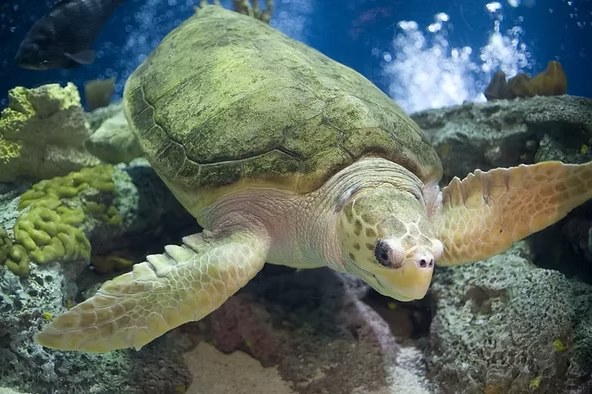Loggerhead Turtle: The Big-Headed Marine Navigator
The loggerhead turtle gets its name from its large head, which houses strong jaw muscles to consume hard-shelled prey like whelks and conch. It is the most common marine turtle that nests across the United States, although many adults migrating to US beaches originate from Cuba, the Bahamas, and Mexico.
1. Range
Loggerhead turtles are widely distributed in temperate, tropical, and subtropical regions of the Pacific, Atlantic, and Indian Oceans. Key range details include:
- Atlantic Ocean: Newfoundland to Argentina
- Eastern Pacific: As far north as Alaska and as far south as Chile
- United States: Juvenile sightings off Oregon and California coasts
- Breeding sites: Southern Japan in the North Pacific
2. Diet
Loggerhead turtles are carnivorous, feeding on a variety of marine organisms:
- Juveniles inhabit floating mats of sargassum and later move to coastal regions
- Adults feed on whelks, mollusks, horseshoe crabs, sea urchins, and other invertebrates
- Strong jaws allow them to crush hard-shelled prey
3. Behavior
Loggerhead turtles have unique adaptations, including salt glands behind their eyes. These glands help them consume seawater and expel excess salt, sometimes giving the appearance that the turtles are “crying.”
4. Reproduction
Mature females travel hundreds of kilometers to nest on the beaches where they hatched, using Earth’s magnetic field for navigation. Reproductive traits include:
- Breeding occurs year-round, peaking in summer
- Females may mate with multiple partners
- Each season, 3–4 clutches of up to 130 eggs are laid
5. Threats to Survival
Loggerhead turtles face numerous threats, particularly in the United States:
- Bycatch in fisheries, including shrimp trawls and nets
- Pollution and ocean debris that can injure or kill turtles
- Coastal development affecting nesting sites
- Historical hunting for flesh and skin
These factors have placed loggerhead turtles on the endangered species list since 1978, despite being the most frequently observed sea turtle in US waters.

